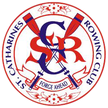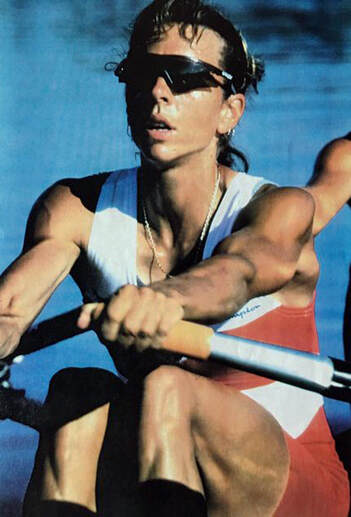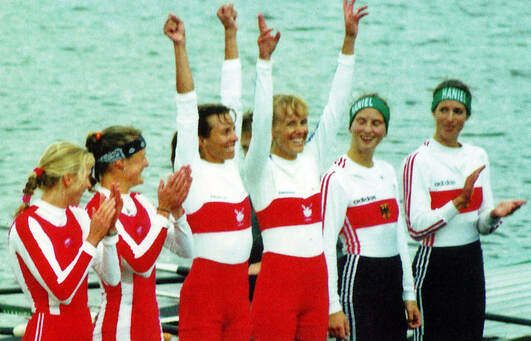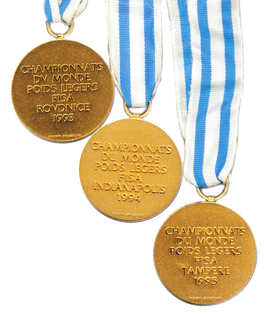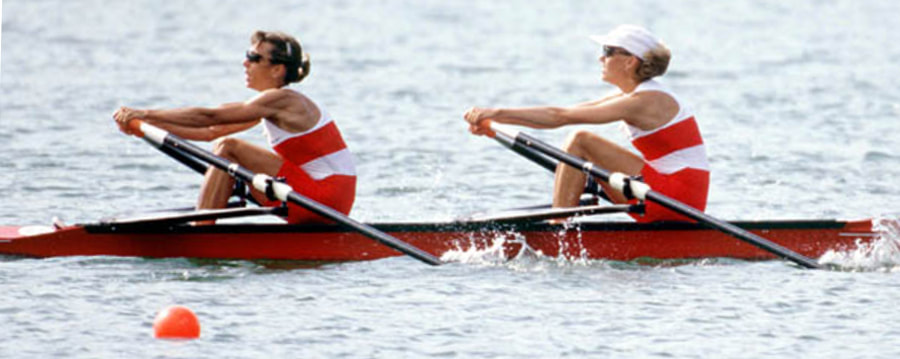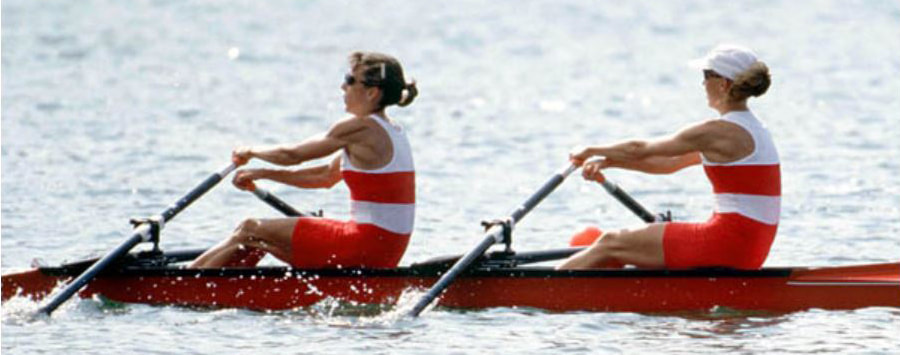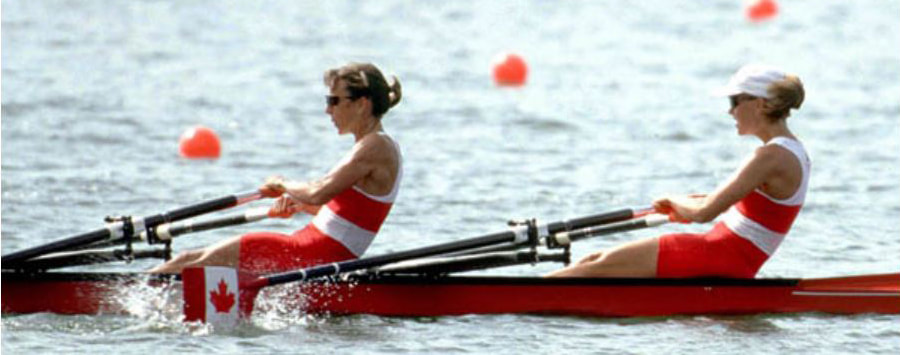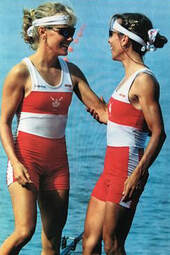|
St. Catharines Rowing Club presents A Conversation with Wendy Wiebe
LK: It seems as though it took little time for your rowing career to be headed in the right direction, with your four gold medals at CSSRA. While you were obviously successful early on, what were the biggest motivating factors in your decision to pursue international competition? WW: It was just little steps that continued to open doors. The biggest thing about rowing is that you can measure your success by how training is going; not always how racing is going because it depends on how everyone else is doing with that, but it just kind of happened by accident, at the beginning at least. With history too, when I started rowing, Canada was not a rowing powerhouse. These things happened step by step over time. When I started rowing with the National Team, the goal was to make the final. It didn’t even feel like it was in the realm of possibility to win when I started. But that all kind of happened over time. So really, it was just a process that had to be taken step by step. I trained mostly with boys: Dave Boyes, Peter Somerwil, and we all fed off each other. There were plans at the end of my career, but it felt like it just kind of happened by chance. You know what it’s like, you get to the end of the season and think you’re never doing it again and then you’re right back at it a month again. I was in the right era too, because in 1984, the lightweight women had an exhibition race at the Worlds, and then it was ushered in more permanently after that. I started sculling after I got married, and then the opportunity for the Olympics added another three years to the schedule. So really, it was just a lot of luck and being surrounded by good people. LK: It’s really interesting, because of everyone I have spoken with, no one said they were intent on going to the Olympics, but rather, that they took care of all the little things, and it fell into place, and your statement really just reaffirmed that sentiment! What was your experience with the St. Catharines Rowing Club? WW: I had a great time. The last five years of my competitive career I wasn’t training very much at St. Catharines, but it has, and will, always be home. I always say you can take the girl out of St. Catharines, but you can’t take the St. Catharines out of the girl; it’s home to me. I just have amazing memories of rowing in the summer there, we just had so much fun. It was what I wanted to do every summer. SCRC holds a very special place in my heart. I just started up there again after 10 or 15 years, and it doesn’t feel like I ever left. LK: It really is such a special place. I always find that when I come home from university, I feel the emotional reconnection when I see my family, but when I drive down Main Street in Port Dalhousie, that’s when I feel like I’m geographically home. How did rowing play a part in your post-secondary education and career? WW: I rowed at University of Western, in the heavyweight boat, but I was always a lightweight. When I finished university, I kept rowing. I was always a sweeper. I came back to St. Catharines and got married the year I graduated. But at the time, if you didn’t own a single, then you didn’t scull. I was having trouble finding people to row with, so in ‘87, I rowed in the lightweight four. When I came back, I didn’t have anyone to row with, so I bought a single to keep training in, while I was working full time and married. I had to borrow money from my dad to buy the single, I had never sculled before, and my husband pushed me off the dock and I was bawling! I started training with the St. Catharines group and went from there. After 3 years, in 1990, I started rowing in the double. In 1992, I quit my full time job to row full time. We won a bronze at ‘93 Worlds, and that was when I started to leave home more and train with the National Team LK: To continue off of that, what was the process like for you with the National Team, given the numerous times you dominated the podium? WW: I did start working full time from 87-92, and around that time, Mike Spracklen came in and reinvented rowing in Canada at the highest level. I was only doing 2 sessions a day, by myself; I resisted doing 3 times a day because I was working, I was married, but I kept coming in third place. At that time, there were rumblings that a lightweight double was going to happen for the Worlds, and so I thought that if I was going to do it, I had to fully pursue it and stop making excuses. So I relocated, and started training with the National Team. I finally gave in, and it was the right decision, it made all the difference. That summer was when we won our first world championship. I had to put my career on hold, but that’s ok, it was the right thing to do for me. The national team is really the same thing as club, at its barest of examinations. You’re jumping through hoops and doing what they tell you to do. One of the reasons Canada became so successful because of the incredibly competitive training environment. It would be everyone, all in singles, just going up and down the course everyday, really doing a “battle paddle”. Twice a week, we would have rated pieces; I think on Wednesdays would be a 5k piece, and they would compare it with the Gold Medal Standard. So we would know who the fastest one on the team was every week. If you were having a bad day, someone who was having a good day would drag you along. It was an awesome, grueling atmosphere. Images from The St. Catharines Rowing Club: 100 Years in a Row, Stan Lapinski LK: I’m sure you learned so many lessons that are applicable to outside life in that environment. WW: Absolutely, you learn how to work with people, what to do when you get shot down. How to win and lose with grace. That’s what I find so upsetting about this era of COVID, how many people we have lost. Not even at the national team, but the grade nine’s, the grade 12’s, they’ve lost such great times in their lives for competition. It’s a very sad time for rowing. LK: In the 1996 Olympic Games, you came down with a terrible flu virus the week before the race, and still managed to finish seventh. What did that experience teach you? What did you do to pull yourself through that race? WW: That was awful. But I didn’t know if it was nerves, or what leading up to the event. Truly a terrible experience, it felt like I was rowing through mud. To be at your best and to lose is one thing, but to not be able to perform at your best is something else. But, through that, though, I learned that the same people that loved me when I was going fast still loved me when I wasn’t. I had great teammates. I got emails from people from all different times of my life demonstrating support. It was also the end of my career. So not only was I done rowing, but it wasn’t a great ending to that time in my life. But I think that things happen for a reason; I learned that the people who I surrounded myself with demonstrated that they were in my corner no matter what. Wendy Wiebe and Colleen Miller at the 1996 Olympics in Atlanta. (CP PHOTOS/ COA/ Claus Andersen)
LK: What do you make of your legacy as one of the most decorated rowers in Canadian history?
AuthorLauren Kelly is a junior at the University of Notre Dame, where she competes on the rowing team and majors in history and Irish studies. A long time member of the St. Catharines Rowing Club, she recently stepped into the role of social media coordinator for the club. Comments are closed.
|
St. Catharines Rowing ClubThe St. Catharines Rowing Club has a long tradition of competing at the highest level in the sport of rowing. Categories
All
Archives
November 2023
|
Please Support Our Sponsors
SIGNATURE
PLATINUM
GOLD
SILVER
BRONZE
© 2014, St. Catharines Rowing Club
St. Catharines Rowing Club, P.O. Box 28010, 600 Ontario St., St. Catharines, ON, L2N 7P8.
St. Catharines Rowing Club, P.O. Box 28010, 600 Ontario St., St. Catharines, ON, L2N 7P8.
